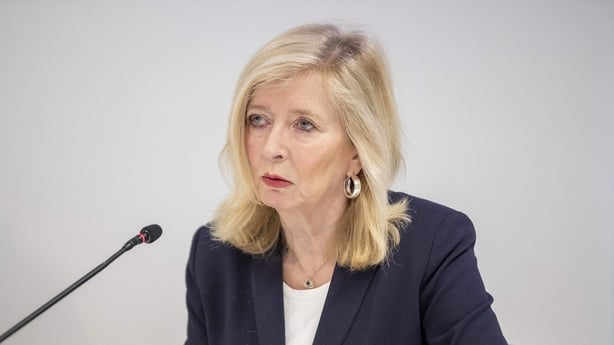The EU Ombudsman Emily O'Reilly has written to the European Commission President Ursula von der Leyen, asking her to spell out how human rights will be guaranteed in a controversial agreement between the EU and Tunisia, designed to limit migrant flows across the Mediterranean.
The commission signed the overall agreement, worth €785 million, with the Tunisian authorities in July after the country became the primary departure route for migrants attempting to cross the sea to Europe.
The Memorandum of Understanding (MoU) is designed to provide training and technical support for Tunisian border management, anti-smuggling operations and reinforcing frontiers.
In a letter to Ms von der Leyen, Ms O’Reilly has sought answers by 13 December on whether or not a human rights impact assessment was carried out before the agreement was signed and if there were measures to "mitigate risks of human rights violations".
The letter also asks if the commission would be carrying out "periodic, systematic and effective" human rights impact assessments while the agreement was being implemented.
Human rights groups have criticised the EU-Tunisia agreement.
In July, International Rescue Committee Senior Vice-President Harlem Désir said it entailed "great risk of abuse, violence, and exploitation, driving migrants and refugees onto even more dangerous routes in search of safety.
"The protection of vulnerable people must not be sacrificed in the name of deterrence."
This week the EU Ombudsman opened an investigation into the agreement.
Ms O’Reilly has been increasingly active in probing EU agreements with third countries relating to migration control.
She recently opened an inquiry into the EU border agency Frontex, and its role in search and rescue operations in the Mediterranean.

She has also issued decisions critical of migration and human rights-related agreements the EU has entered into with Turkey and Vietnam.
The EU-Tunisia MoU was jointly brokered by Ms von der Leyen, the outgoing Dutch prime minister Mark Rutte and the Italian Prime Minister Georgia Meloni and entered into with the Tunisian President Kais Saied.
However, Mr Saied has been accused of becoming increasingly authoritarian after he suspended the Tunisian parliament and sacked the government, carrying out a wave of arrests of opposition leaders and civil society activists.
In July a cross party group of MEPs wrote to Ms von der Leyen and said the agreement failed to address "core human rights concerns" in Tunisia.
On Tuesday, the EU Neighbourhood Commissioner Olivér Várhelyi told MEPs in Strasbourg that "respect for human rights and democratic principles is enshrined in the EU-Tunisia Association Agreement, which is the overarching legal framework for the bilateral relations.
"In addition, the objective is to hold the EU-Tunisia Association Council by the end of the year to tackle many aspects of the bilateral partnership, including the situation of human rights and fundamental values."
According to Mr Várhelyi, the Tunisian coast guard had made 24,000 interceptions in the southern Mediterranean Sea this year, compared to only 9,376 in 2022.






